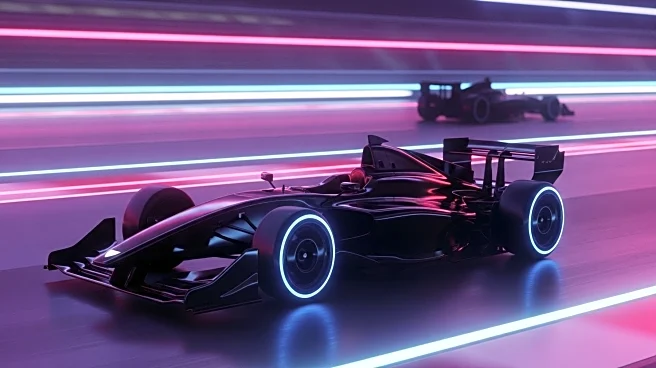What's Happening?
Max Verstappen, the leading driver for Red Bull Racing, has expressed concerns about the team's prospects for the 2026 Formula 1 season. Despite Red Bull's efforts to improve their car throughout the 2025 season, Verstappen has indicated that he is more confident in rival team Mercedes' performance in the upcoming year. He acknowledged the challenges posed by new regulations and the risks associated with Red Bull's engine development. Verstappen remains hopeful that Red Bull will be competitive, but he is cautious about the team's ability to lead the grid.
Why It's Important?
Verstappen's comments highlight the competitive dynamics within Formula 1, particularly the ongoing rivalry between Red Bull and Mercedes. His confidence in Mercedes suggests that they may have a technological edge, which could impact Red Bull's strategy and performance. The new regulations for 2026 introduce uncertainties that could reshape the competitive landscape, affecting team strategies and investments. Red Bull's ability to adapt and innovate will be crucial in maintaining their position in the sport.
What's Next?
As the 2026 season approaches, Red Bull will need to focus on optimizing their engine and car design to meet the new regulations. The team may face increased pressure to deliver results, especially if Mercedes continues to show strength. Stakeholders, including sponsors and fans, will be watching closely to see how Red Bull navigates these challenges. The team's performance in the upcoming season could influence their long-term strategy and partnerships.
Beyond the Headlines
The shift in regulations and Verstappen's comments may prompt discussions about the future of engine technology in Formula 1. Red Bull's approach to risk-taking and innovation could serve as a case study for other teams facing similar challenges. The broader implications for the sport include potential changes in team hierarchies and the role of technological advancements in shaping competitive outcomes.









